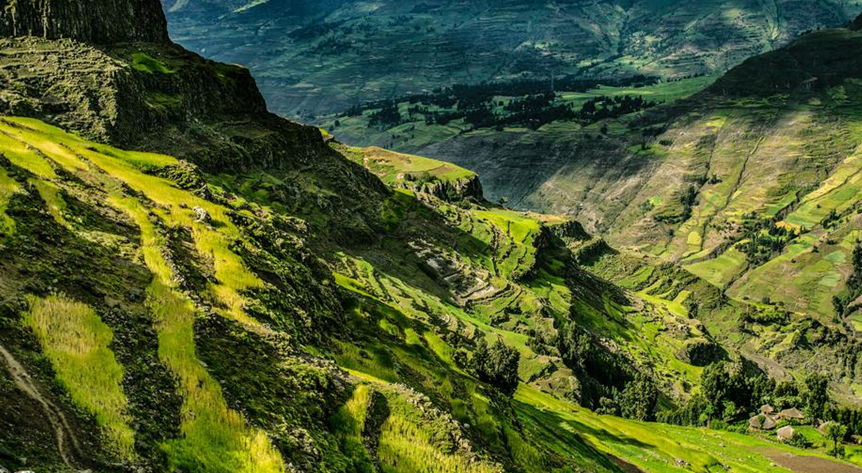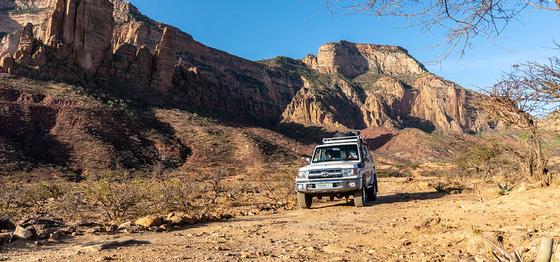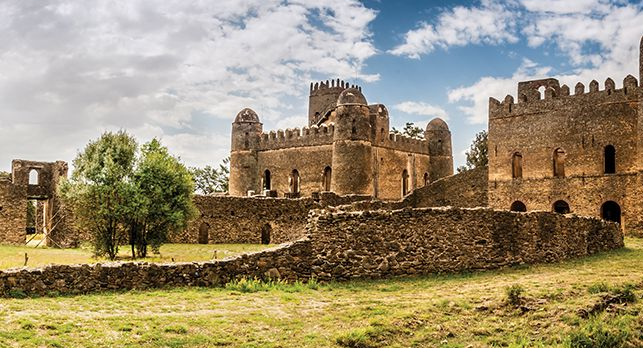
Ethiopia Travel Tips, provides invaluable insights and advice for anyone planning to explore this enchanting destination. From essential information on visa requirements and health precautions to cultural etiquette and off-the-beaten-path destinations, this guide equips travelers with the knowledge and tools needed to navigate Ethiopia safely and respectfully. Whether you’re drawn to its historical landmarks, diverse landscapes, or vibrant culture, these tips will ensure a memorable and enriching travel experience in Ethiopia.
Table of Contents
A. Brief Overview of Ethiopia’s Location and Culture
Ethiopia, located in the Horn of Africa, is a country renowned for its rich history, diverse culture, and stunning landscapes. It is the second-most populous country in Africa and boasts a unique blend of traditions influenced by its ancient civilizations, including the Aksumite and Ethiopian empires. The country’s geographical diversity ranges from the highlands of the Simien Mountains to the otherworldly landscapes of the Danakil Depression. Ethiopia is also home to numerous UNESCO World Heritage Sites, such as Lalibela’s rock-hewn churches and the ancient city of Aksum, reflecting its significance in global history and culture.
B. Importance of Travel Tips for Visiting Ethiopia
Traveling to Ethiopia offers an incredible opportunity to explore its treasures, but it’s essential to be well-prepared to make the most of your experience. With its unique culture, varying landscapes, and potential challenges, having practical travel tips can enhance your journey and ensure a smooth and enjoyable adventure. From understanding visa requirements to respecting local customs, these tips can help travelers navigate Ethiopia’s complexities and make meaningful connections with its people while staying safe and respectful throughout their visit. By acknowledging the importance of travel tips, visitors can embark on a transformative journey filled with discovery, cultural immersion, and unforgettable experiences in Ethiopia.
Preparing for Your Trip
Preparing for Your Trip is a comprehensive guide designed to help travelers plan and organize their journey to Ethiopia with confidence and ease. Covering essential topics such as visa requirements, health precautions, and packing essentials, this resource ensures that travelers are well-prepared for their adventure. From ensuring travel documents are in order to packing appropriate clothing for Ethiopia’s diverse climate and terrain, this guide equips travelers with the knowledge and tools needed to make the most of their experience. Whether it’s understanding vaccination recommendations or knowing how to navigate local customs, “Preparing for Your Trip” sets the stage for a smooth and enjoyable journey through the wonders of Ethiopia.
A. Visa Requirements and Travel Documents
Before embarking on your journey to Ethiopia, it’s crucial to ensure you have the necessary travel documents in order. Most visitors to Ethiopia require a tourist visa, which can typically be obtained upon arrival at the airport or online prior to departure. However, it’s essential to check the latest visa requirements and regulations to avoid any last-minute complications. Additionally, make sure your passport is valid for at least six months beyond your planned date of departure from Ethiopia to avoid any issues at immigration.
B. Vaccinations and Health Precautions
Protecting your health is paramount when traveling to Ethiopia. Before your trip, consult with a healthcare professional or travel clinic to receive up-to-date information on recommended vaccinations and health precautions for Ethiopia. Common vaccinations include those for yellow fever, typhoid, hepatitis A and B, and routine immunizations. It’s also essential to take precautions against malaria and other mosquito-borne diseases by using insect repellent and sleeping under mosquito nets, especially if traveling to rural areas.
C. Packing Essentials for Ethiopia’s Climate and Terrain
Ethiopia’s climate and terrain vary significantly across the country, so packing the right essentials is essential for a comfortable and enjoyable trip. Depending on the regions you plan to visit and the time of year, pack lightweight and breathable clothing suitable for warm temperatures, as well as layers for cooler evenings in the highlands. Don’t forget essentials such as sunscreen, a wide-brimmed hat, sturdy walking shoes for exploring, a reusable water bottle, and any necessary medications or personal care items. Additionally, consider packing a travel adapter for your electronic devices, as Ethiopia’s electrical outlets typically use the European two-pin plug. By packing wisely, you’ll be well-prepared to embrace Ethiopia’s diverse landscapes and cultural experiences with ease.
Getting Around Ethiopia

Getting Around Ethiopia offers essential guidance for travelers seeking to navigate the diverse terrain and transportation options of this fascinating country. From bustling urban centers to remote rural areas, this guide provides insights into the various modes of transportation available, including domestic flights, buses, taxis, and rental cars. Travelers will discover tips for staying safe while on the road, navigating cities efficiently, and venturing off the beaten path with confidence. Whether exploring historical sites or natural wonders, mastering the art of getting around Ethiopia ensures a seamless and memorable travel experience.
A. Transportation Options within Ethiopia
Ethiopia offers various transportation options for travelers to navigate the country. Domestic flights are available between major cities, offering a quick and convenient way to cover long distances. Alternatively, buses and minibusses (known as “dolmus”) provide affordable transportation between cities and towns, although they may be less comfortable and more time-consuming. In urban areas, taxis and ride-hailing services like Uber are common, while renting a car with a driver is another popular choice for exploring remote regions.
B. Safety Considerations for Traveling Around the Country
While traveling around Ethiopia, it’s essential to prioritize safety at all times. Exercise caution when using public transportation, particularly buses and minibusses, as they may be overcrowded and prone to accidents. Be vigilant with your belongings and avoid displaying valuables to minimize the risk of theft. Additionally, be mindful of road conditions, especially in rural areas where infrastructure may be less developed. It’s advisable to travel during daylight hours and avoid driving at night whenever possible.
C. Tips for Navigating Cities and Rural Areas
Navigating cities and rural areas in Ethiopia requires some preparation and awareness. In cities like Addis Ababa, familiarize yourself with landmarks and major streets to navigate efficiently. Be cautious when crossing busy roads and always use designated pedestrian crossings when available. In rural areas, consider hiring a local guide to help navigate unfamiliar terrain and communicate with local communities. Respect local customs and traditions, and ask for permission before taking photographs, especially in rural villages. By staying informed and respectful, you’ll enhance your travel experience while exploring Ethiopia’s diverse landscapes and cultures.
Cultural Etiquette and Customs

Cultural Etiquette and Customs provides invaluable insights into navigating the rich tapestry of traditions and social norms in Ethiopia. From understanding the significance of greetings and religious practices to respecting local customs and dining etiquette, this guide empowers travelers to engage with Ethiopian culture respectfully and authentically. Learn how to interact with locals, behave appropriately at cultural sites, and participate in communal dining experiences with grace and sensitivity. By embracing Ethiopian customs with understanding and respect, travelers can forge meaningful connections and enrich their journey through this vibrant and diverse land.
A. Understanding Ethiopian Culture and Traditions
Ethiopia boasts a rich and diverse cultural heritage shaped by centuries of history and tradition. It’s essential for visitors to take the time to learn about and respect Ethiopian customs. Ethiopian culture places great emphasis on hospitality, community, and respect for elders. Greetings are an important aspect of Ethiopian etiquette, with handshakes and the traditional Ethiopian greeting of “Selam” or “Salamno” being common. Understanding the significance of religious practices, such as Orthodox Christianity and Islam, is also key to appreciating Ethiopian culture.
B. Respectful Behavior Towards Locals and Cultural Sites
Respecting locals and cultural sites is paramount when traveling in Ethiopia. Always seek permission before taking photographs, especially in religious sites and rural communities. When visiting religious sites such as churches and mosques, dress modestly and observe any rules or customs, such as removing shoes before entering. Additionally, be mindful of local customs and traditions, such as refraining from public displays of affection and avoiding sensitive topics in conversation.
C. Dining Customs and Etiquette
Ethiopian dining customs are unique and reflect the country’s communal culture. Traditional Ethiopian meals are often served on a communal platter called a “mesob,” with diners sharing from the same plate. When dining with Ethiopians, it’s customary to wash your hands before and after the meal. Injera, a sourdough flatbread, is a staple of Ethiopian cuisine and is used to scoop up various dishes. To show respect, use your right hand for eating and avoid touching food with your left hand, which is considered unclean. Additionally, it’s polite to wait for the host or eldest person to begin eating before you start. By observing these dining customs, you’ll not only enjoy the delicious flavors of Ethiopian cuisine but also show respect for Ethiopian culture and traditions.
Exploring Ethiopia’s Attrac

Exploring Ethiopia’s Attractions invites travelers on a captivating journey through the country’s rich tapestry of historical landmarks and natural wonders. From the ancient marvels of Lalibela’s rock-hewn churches to the breathtaking landscapes of the Simien Mountains National Park, this guide showcases Ethiopia’s diverse treasures. Delve into vibrant cultural experiences like traditional coffee ceremonies and bustling markets, or venture off the beaten path to uncover hidden gems in remote villages and the Omo Valley. Whether you’re drawn to historical sites, outdoor adventures, or cultural immersion, Ethiopia offers an array of attractions to captivate every traveler’s imagination.
A. Highlights of Ethiopia’s Historical and Natural Landmarks
Ethiopia is home to a wealth of historical and natural landmarks that captivate visitors. From the ancient rock-hewn churches of Lalibela to the towering peaks of the Simien Mountains National Park, there’s no shortage of breathtaking sights to explore. Other must-visit attractions include the medieval castles of Gondar, the Blue Nile Falls, and the Danakil Depression, one of the hottest and most surreal places on Earth.
B. Recommended Activities and Experiences
Immerse yourself in Ethiopia’s vibrant culture by attending traditional coffee ceremonies, where you can sample freshly brewed Ethiopian coffee and engage in lively conversation. For outdoor enthusiasts, trekking in the Bale Mountains or exploring the Rift Valley lakes offer unforgettable experiences. Don’t miss the chance to explore bustling markets, such as Addis Mercato in Addis Ababa, where you can shop for local crafts, spices, and souvenirs.
C. Insider Tips for Off-the-Beaten-Path Destinations
Venture off the beaten path to discover hidden gems and lesser-known destinations in Ethiopia. Consider exploring the ancient walled city of Harar, known for its narrow alleyways and colorful markets, or embarking on a cultural homestay in a rural village to experience traditional Ethiopian life firsthand. The remote Omo Valley is another fascinating area to explore, home to diverse indigenous tribes and unique cultural traditions. Be prepared for rugged terrain and basic amenities when venturing off the beaten path, and consider hiring a local guide for an authentic and enriching experience.
Staying Safe in Ethiopia
Staying Safe in Ethiopia offers indispensable guidance to travelers seeking to navigate the country’s diverse landscapes and cultural experiences securely. Covering topics such as crime prevention, health precautions, and emergency preparedness, this comprehensive resource empowers visitors to enjoy Ethiopia’s wonders with confidence and peace of mind. With practical advice on staying vigilant, maintaining hygiene, and accessing emergency assistance, travelers can embark on their Ethiopian journey fully equipped to prioritize their safety and well-being.
A. Crime and Safety Considerations for Travelers
While Ethiopia is generally a safe destination for travelers, it’s essential to remain vigilant and take precautions to ensure your safety. Avoid displaying valuables in public, especially in crowded areas, and be cautious of pickpocketing and petty theft. Stay aware of your surroundings, particularly in busy markets and tourist sites, and consider using a money belt or hidden pouch to secure your belongings. When exploring urban areas, stick to well-lit and populated areas, especially at night, and avoid walking alone in unfamiliar areas.
B. Health and Hygiene Tips to Avoid Illnesses
Protecting your health is crucial when traveling in Ethiopia. Drink only bottled or boiled water, and avoid consuming raw or undercooked food, particularly in street stalls and local eateries. Practice good hand hygiene by washing your hands regularly with soap and water or using hand sanitizer, especially before eating or handling food. Additionally, take precautions against mosquito bites by using insect repellent and wearing long sleeves and pants, especially during dawn and dusk when mosquitoes are most active. Consider taking antimalarial medication and staying up to date with routine vaccinations before your trip.
C. Emergency Contacts and Precautions to Take
Before your trip to Ethiopia, familiarize yourself with emergency contacts and procedures in case of an emergency. Save the contact information for local authorities, including the police and emergency medical services, in your phone and keep a printed copy in your travel documents. Additionally, make sure you have adequate travel insurance that covers medical expenses and emergency evacuation. In the event of a natural disaster or civil unrest, follow the guidance of local authorities and seek shelter in a safe location. By staying informed and prepared, you can enjoy a safe and memorable journey in Ethiopia.
| Section | Description |
| A. Brief Overview of Ethiopia | Overview of Ethiopia’s location, culture, history, and geography. |
| B. Importance of Travel Tips | Importance of travel tips for visiting Ethiopia, ensuring a smooth and enjoyable experience. |
| Preparing for Your Trip | Comprehensive guide covering visa requirements, health precautions, and packing essentials for Ethiopia. |
| A. Visa Requirements and Travel Documents | Information on obtaining tourist visas and ensuring passport validity. |
| B. Vaccinations and Health Precautions | Recommendations for vaccinations, health precautions, and protection against diseases like malaria. |
| C. Packing Essentials for Ethiopia | Guidance on packing suitable clothing, sunscreen, water bottles, medications, and adapters. |
| Getting Around Ethiopia | Guidance on transportation options, safety considerations, and navigating cities and rural areas in Ethiopia. |
| A. Transportation Options within Ethiopia | Information on domestic flights, buses, taxis, and rental cars. |
| B. Safety Considerations for Traveling Around the Country | Tips for staying safe, avoiding accidents, theft, and road hazards. |
| C. Tips for Navigating Cities and Rural Areas | Advice for navigating cities, crossing roads, hiring local guides, and respecting local customs. |
| Cultural Etiquette and Customs | Insights into Ethiopian customs, greetings, religious practices, respecting locals, and dining etiquette. |
| A. Understanding Ethiopian Culture and Traditions | Importance of hospitality, greetings, and respect for religious practices. |
| B. Respectful Behavior Towards Locals and Cultural Sites | Guidelines for respecting locals, seeking permission for photographs, and observing customs at religious sites. |
| C. Dining Customs and Etiquette | Description of Ethiopian dining customs, using the right hand for eating, washing hands, and waiting for the host to eat. |
| Exploring Ethiopia’s Attractions | Highlights of historical and natural landmarks, recommended activities, and off-the-beaten-path destinations. |
| A. Highlights of Ethiopia’s Historical and Natural Landmarks | Overview of historical sites, natural wonders, and cultural experiences in Ethiopia. |
| B. Recommended Activities and Experiences | Suggestions for cultural immersion, outdoor adventures, and market exploration in Ethiopia. |
| C. Insider Tips for Off-the-Beaten-Path Destinations | Ideas for exploring hidden gems, rural villages, and indigenous tribes in Ethiopia. |
| Staying Safe in Ethiopia | Guidance on crime prevention, health precautions, emergency contacts, and procedures for a safe journey in Ethiopia. |
| A. Crime and Safety Considerations | Tips for avoiding theft, staying aware of surroundings, and ensuring personal safety in urban areas. |
| B. Health and Hygiene Tips | Advice for drinking safe water, eating hygienically, and protecting against mosquito-borne diseases in Ethiopia. |
| C. Emergency Contacts and Precautions to Take | Information on emergency contacts, travel insurance, and procedures in case of natural disasters or civil unrest. |
Conclusion:
Ethiopia, with its rich history, diverse culture, and stunning landscapes, offers travelers an enchanting destination to explore. From the ancient wonders of Lalibela’s rock-hewn churches to the breathtaking beauty of the Simien Mountains, Ethiopia captivates visitors with its unique blend of tradition and natural splendor. However, embarking on a journey to Ethiopia requires careful planning and preparation to ensure a safe and culturally enriching experience.
Travel tips play a crucial role in helping visitors navigate Ethiopia’s complexities and make meaningful connections with its people while staying safe and respectful. Understanding visa requirements, prioritizing health precautions, and respecting local customs are essential aspects of preparing for a trip to Ethiopia. Additionally, mastering the art of getting around Ethiopia, whether by domestic flights or navigating bustling cities, ensures a seamless and memorable travel experience.
Cultural etiquette and customs guide travelers in engaging respectfully with Ethiopian culture, from greetings and religious practices to dining customs and behavior towards locals. Exploring Ethiopia’s attractions offers a wealth of experiences, from historical landmarks to off-the-beaten-path destinations, inviting travelers to immerse themselves in the country’s vibrant heritage and natural wonders.
Staying safe in Ethiopia requires vigilance, awareness of potential risks, and preparedness for emergencies. Crime prevention, health precautions, and knowing emergency contacts are crucial for travelers to prioritize their safety and well-being throughout their journey.
In conclusion, Ethiopia beckons adventurers with its allure of ancient history, diverse landscapes, and vibrant culture. By heeding travel tips, respecting local customs, and prioritizing safety, travelers can embark on a transformative journey through the Land of Legends, ensuring a memorable and enriching experience in Ethiopia.
FAQ:
- What are the visa requirements for visiting Ethiopia? Most visitors to Ethiopia require a tourist visa, which can typically be obtained upon arrival at the airport or online prior to departure. However, it’s essential to check the latest visa requirements and regulations to avoid any last-minute complications.
- What vaccinations are recommended for traveling to Ethiopia? Recommended vaccinations for traveling to Ethiopia include those for yellow fever, typhoid, hepatitis A and B, and routine immunizations. Additionally, precautions against malaria and other mosquito-borne diseases are essential, including the use of insect repellent and sleeping under mosquito nets.
- What are some essential items to pack for a trip to Ethiopia? Essential items to pack for Ethiopia include lightweight and breathable clothing suitable for warm temperatures, sunscreen, a wide-brimmed hat, sturdy walking shoes, a reusable water bottle, necessary medications, and a travel adapter for electronic devices.
- What transportation options are available within Ethiopia? Ethiopia offers various transportation options, including domestic flights between major cities, buses, minibusses (“dolmus”), taxis, and rental cars with drivers. Each mode of transportation has its advantages and considerations depending on your itinerary and preferences.
- How can travelers ensure their safety while exploring Ethiopia? Travelers can prioritize their safety in Ethiopia by remaining vigilant, avoiding displaying valuables in public, staying aware of surroundings, practicing good hand hygiene, and familiarizing themselves with emergency contacts and procedures. Additionally, respecting local customs and seeking advice from locals can contribute to a safer and more enjoyable travel experience.

